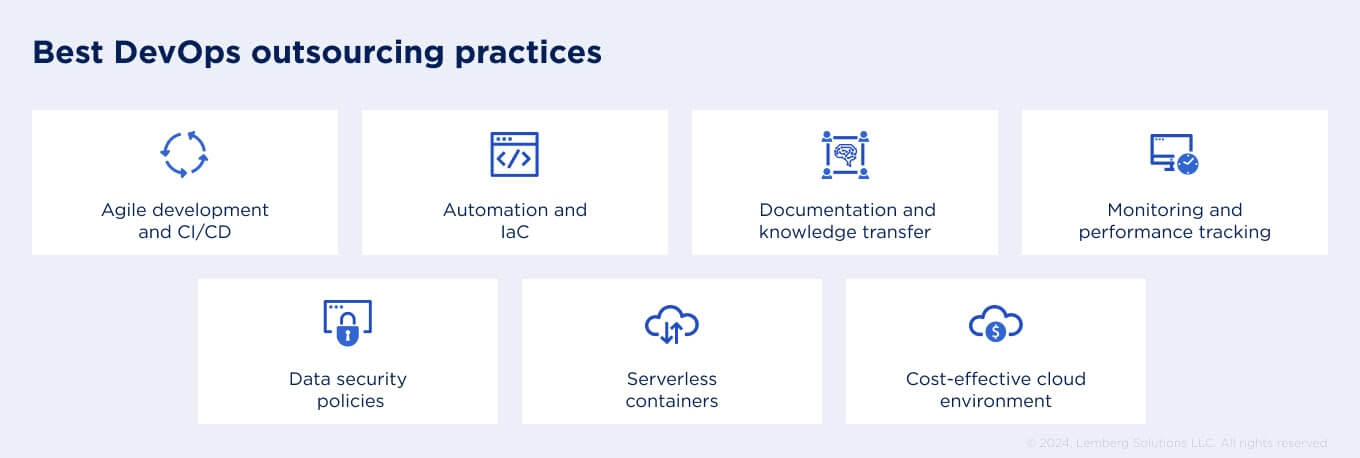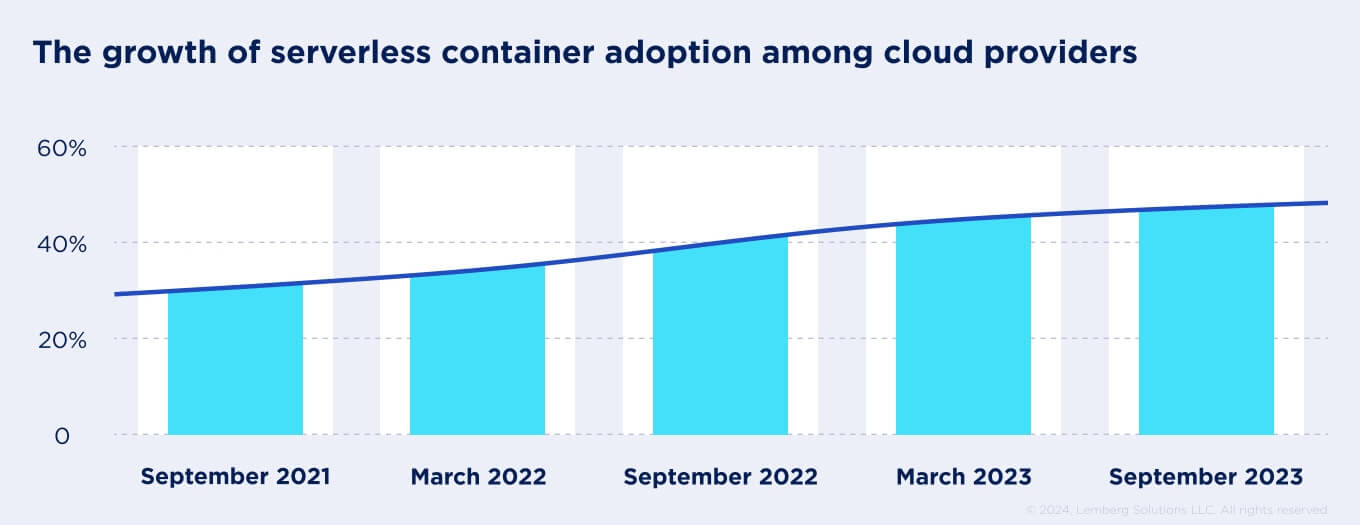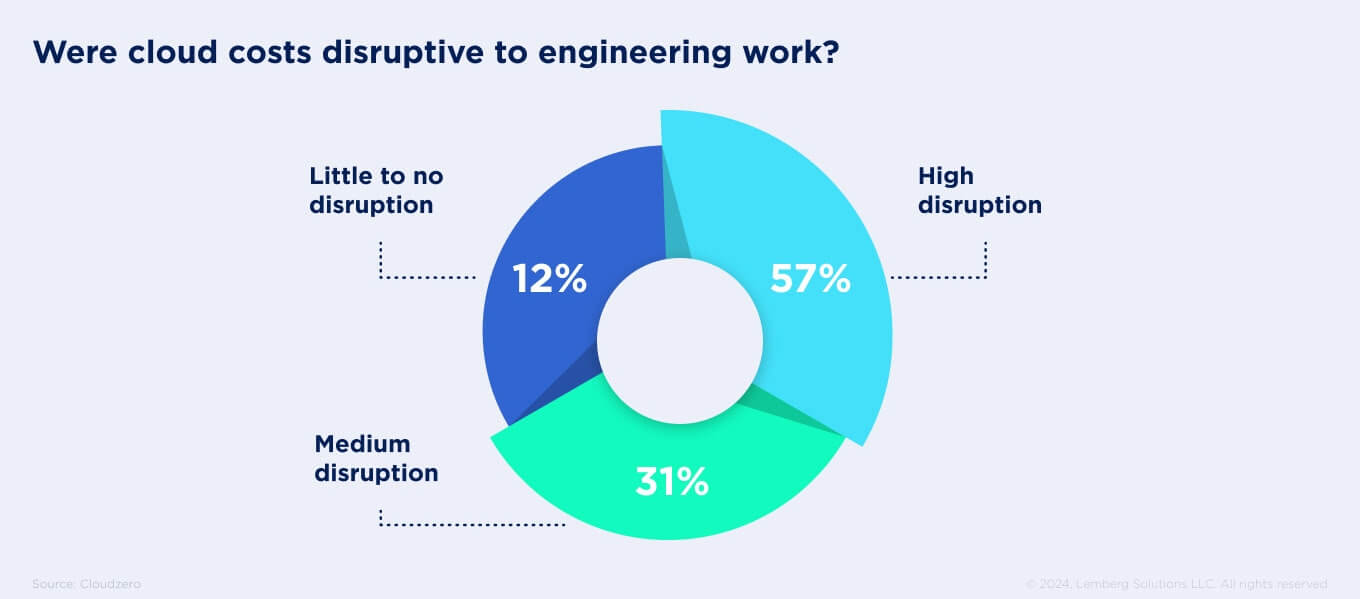Finding a balance between coding and project operations is key to staying ahead of the competition in the fast-paced world of software development. That's when DevOps comes in handy. However, keeping an in-house team to establish DevOps operations can be costly and challenging. With DevOps outsourcing, you can choose from a large talent pool and fill the lacking tech expertise to make your workflow smooth.
In this article, you will learn how to outsource DevOps in the most effective ways. Figure out the ins and outs of making DevOps outsourcing work for you.
What is DevOps outsourcing?
DevOps outsourcing is a strategic business practice that involves delegating DevOps functions to external service providers. DevOps encompasses software development and IT operations to set up or improve the entire software development lifecycle. With DevOps outsourcing, organizations leverage the expertise of external partners to implement and manage their software solutions.
During DevOps outsourcing, professional third-party vendors take responsibility for continuous integration, delivery, automation, and infrastructure management tasks. By outsourcing DevOps, companies leverage the knowledge and experience of professionals who stay up to date with the latest DevOps tools, methodologies, and best practices. This allows businesses to pursue their core business goals while ensuring the efficient and smooth functioning of their software development processes.

Reasons to outsource DevOps
Outsourcing DevOps services offers several advantages, including cost optimization, scalability, and the possibility to choose from a large talent pool. External service providers can offer fresh perspectives, innovative solutions, and industry best practices to improve the agility and efficiency of client's software development teams. Collaboration between in-house teams and external DevOps experts ensures continuous product innovation, faster development cycles, and more reliable software releases. DevOps outsourcing empowers organizations to accelerate their transformation, reduce time-to-market for software products, and stay ahead of the competition.
The DevOps market is expected to grow from $10.4 billion in 2023 to $25.5 billion in 2028. More and more companies leverage DevOps practices to achieve better results. Atlassian market survey revealed that 99% of the participants noticed a positive impact of DevOps. 61% observed that the quality of deliverables increased due to DevOps, while 49% noticed faster time-to-market.

Projects that can benefit from DevOps outsourcing
DevOps helps to set up different projects to ensure smooth development, with startups and enterprise projects thriving the most from DevOps.

Startup projects
DevOps offers a collaborative and streamlined approach to software development. It is a game-changer for startups navigating the dynamic landscape of technology-driven business environments. The benefits it brings can significantly empower and accelerate the growth of an early-stage technology product.
DevOps facilitates and accelerates development cycles and the release of software updates. For startups, this means a more agile response to market demands, allowing them to swiftly adapt to changing requirements and stay ahead of competitors. The continuous integration and delivery practices inherent to DevOps help achieve reliable and efficient software deployment.
Cost-effectiveness is another notable advantage for startups embracing DevOps. By automating routine tasks, DevOps reduces operational costs associated with manual interventions. This is especially important for startups with constrained budgets since they can manage their resources more strategically and take care of business needs.
For startups, DevOps means a more cohesive and efficient workflow. DevOps teams boost innovation and focus on problem-solving, which is essential for startups navigating challenges in a competitive landscape. DevOps encourages a robust feedback loop through continuous monitoring and evaluation, enabling startups to identify and fix issues promptly.
Enterprise projects
In the context of large-scale and complex projects, the principles integrated into DevOps help navigate the complexities of modern software development.
DevOps facilitates the delivery cycles, which is crucial for enterprise projects. Continuous integration ensures swift and reliable deployment of updates and features. This agility is particularly critical in dynamic business environments where rapid adaptation to market changes is a prerequisite for staying competitive.
Cost efficiency is a substantial benefit that DevOps brings to enterprise projects. Through automation of repetitive tasks, resource optimization, and the elimination of manual errors, DevOps significantly reduces operational expenses.
Continuous monitoring and feedback loops inherent in DevOps contribute to enhanced project quality. By identifying and addressing issues in real time, enterprises can ensure the stability of their software.
Security, often a paramount concern for enterprises, is addressed through the integration of security practices into the DevOps pipeline. For DevOps teams, security is a crucial part of the development process. This mitigates risks and enhances the resilience of enterprise systems.
Outsourcing DevOps services: pros and cons
An outsourced DevOps team comes with certain advantages and challenges you need to know about before hiring one.
Pros of outsourcing DevOps services:
Financial and operational efficiency
DevOps outsourcing ensures cost savings. Rather than investing in in-house professionals on a full-time basis, companies can engage an outsourced DevOps dedicated team, which will cost much less. This reduces extra expenses on in-house team training and recruitment. Outsourcing your software to an external DevOps team will streamline your workflow and result in overall operational efficiency.
Access to niche knowledge
Outsourcing DevOps processes provides businesses with access to a large number of seasoned professionals. These specialists demonstrate proficiency in cutting-edge technologies and incorporate fresh ideas into the software setup process. Their commitment to learning new tools and methodologies, as well as their vast experience with projects from different industries, ensures the forefront position for your business.
Flexibility in project development
If you need to scale your project up or down, the external DevOps team will easily adjust to changes. They can undertake fewer or more tasks and still provide steady results. However, with an in-house team, you wouldn’t have such flexibility. Outsourcing DevOps means that your business becomes more prepared for the market competition since an external team ensures the required level of adaptability.
Constant software support and monitoring
External DevOps teams track the issues within the project and fix them swiftly and timely. Your software is always under control, running smoothly, and getting the needed support as soon as possible. You don’t have to worry about the proper functioning of your solution since the external team takes care of a positive user experience.
Cons of outsourcing DevOps services
Communication difficulties
It takes time and effort for your in-house team and external team to establish strong and clear communication. Moreover, there can be a language barrier between the engineers. When searching for a partner, make sure that they can resolve the communication challenge. For instance, at Lemberg Solutions, our DevOps engineers have an Intermediate English level and higher. This helps them clearly understand and convey any information.
Cultural and time zone differences
Depending on your future partner’s location, you may experience difficulty scheduling calls and providing timely feedback. If you need an instant response from your partner, you may have to wait for hours before their workday starts. That is why it’s better to choose an external team that resides close to your location. For instance, since our company’s offices are located in Ukraine, we are close to European countries, and the time difference is only 1-2 hours. Even though this difference increases for the U.S. clients, we still have an overlap and can communicate every day.
Reliability of the external team
Since you delegate a critical part of your business operations to an external team, you should make sure they are committed to your project. The team should be regularly available. They should also update you about the software setup progress. Check your team’s previous experience with outsourcing and sign an SLA agreement for clarity.
How to make DevOps outsourcing work: 7 best practices
To ensure that your outsourced DevOps project works well, the best external teams usually adhere to the following practices:

1. Agile development and CI/CD
The adoption of Agile development contributes to iterative progress and boosts flexibility. Before outsourcing your software to an external DevOps team, make sure they have the necessary expertise in Agile methodologies. CI/CD practices ensure that the DevOps team swiftly identifies any integration errors, which reduces the expenses associated with overdue fixes.
2. Automation and Infrastructure-as-Code (IaC)
The automation of routine tasks enables fast product development. IaC plays a pivotal role in ensuring software infrastructure consistency across various environments. To outsource DevOps successfully, check whether an external team has hands-on experience with IaC and automation. They will ensure that your software will run smoothly and scale up easily in the future.
3. Proper documentation and knowledge transfer
Thorough documentation and systematic knowledge transfer sessions are necessary for the efficient DevOps setup. Either your in-house team will need to implement certain changes, or you will involve DevOps and developers for product modifications in the future — proper documentation will simplify the process. If DevOps engineers pay attention to documentation, you avoid potential misunderstandings and software errors.
4. Monitoring and performance tracking
Consistent software monitoring and the use of strategic metrics boost the generation of useful insights about your system performance. This way, DevOps engineers will detect what requires improvement faster. If your DevOps outsourcing team promotes regular solution monitoring and updates you on the system’s performance, your project will develop more smoothly.
5. Data security policies
DevOps team should follow strict data security practices to ensure your software works steadily and is protected against cyber attacks. DevOps engineers need to integrate data security into their regular workflow. At Lemberg Solutions, our DevOps team follows internationally recognized regulations since we have ISO 9001:2015 and ISO 27001:2013 certifications.
6. Using serverless containers
More and more cloud providers include serverless containers in their services, especially Google Cloud. Such an increase in popularity is caused by the benefits of serverless containerization: saving resources and costs for the clients and allowing development teams to focus more on business needs. Serverless containers even allow cloud and DevOps engineers to create a stable environment for AI-powered software.

7. Setting up a cost-effective cloud environment
According to research, 55% of engineers reported that their work has been disrupted by unexpected cloud costs. Companies are often surprised to see the cloud costs since they are usually higher than expected. DevOps practices help to optimize cloud costs and avoid any unexpected budget overrun.

Why choose Lemberg Solutions for DevOps outsourcing?
Apart from having a senior-level DevOps team and strong security policies, we have other benefits to offer.
The DevOps team at Lemberg Solutions always follows the best practices and uses modern tools while working with the client’s software. Our team always ensures that your product is ready for future scaling. This way, we reduce the risks of rebuilding the ineffective infrastructure from scratch.
To help you avoid any pitfalls with the cloud environment, our DevOps team consults you on different cloud providers, their services, and costs. We will help you choose the most cost-effective solution covering your software needs. Our DevOps team can also update you on any service and cost changes incorporated by the cloud provider.
Our projects
Check out the examples of our DevOps outsourcing projects.

A fleet intelligence dashboard for a Safety-aaS solution
Our client Peregrine, a German-based company, creates AI-empowered solutions for tracking safety on the roads and gathering fleet statistics. Peregrine didn’t have an in-house DevOps team and required to set up a software environment before scaling the project. They asked our DevOps team to work on the project within the AWS cloud environment. We also monitored software performance and implemented needed updates. Our team made the software work steadily and become cheaper to maintain.
Read more about the development process.

IoT web application for workplace noise monitoring
A London-based startup EAVE creates noise management solutions for industrial and individual use. EAVE wanted to scale their project and make it more feature-rich. However, their system has been outdated. In addition to the development team, EAVE required DevOps engineers to make the software environment ready for further changes. Also, our DevOps team undertook troubleshooting, bug fixing, and software monitoring.
Find more details about the development process.

Takeaway
Outsourcing your project to an external DevOps team can be a challenging task since you put your business success at stake. However, if a team follows security policies, monitors your software performance, integrates timely updates, and prepares the environment for future scaling, your solution will gain a competitive edge.
If you need to set up your software and search for an experienced DevOps team, contact us and tell us about your needs.
